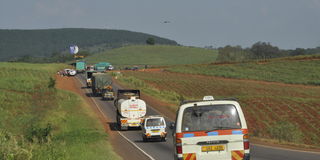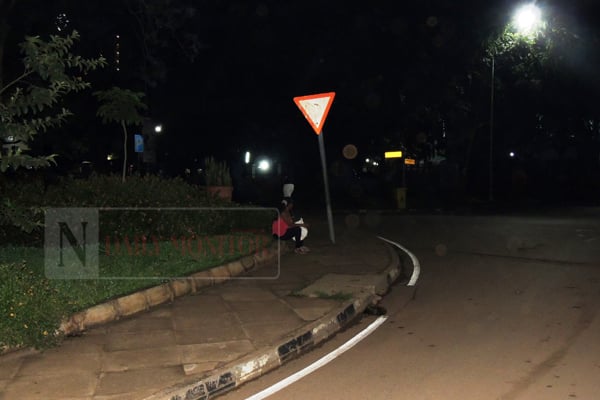Prime
Staying safe on the road this festive season

The general rule of thumb is that you should be able to see the rear tyres of the car in front of you and if you cannot, then you are too close. PHOTO/file
What you need to know:
With the blows this year has dealt us, we all want to spend the festive season with friends and family, which means a lot of travelling and driving. Therefore, as a motorist or passenger, obey traffic rules to avoid disruptions and inconveniences such as spending the holiday behind bars or in the hospital.
The festive season is characterised by lots of travelling as many try to make their way to their respective villages or holiday destinations. However, it is also the time of the year when road acidents are high. We look at some tips to follow to ensure you reach your destination safely.
Speed
Although driving fast is exciting, it kills. The 2020 Annual police crime report is in agreement. It reports that 10 Ugandans die per day due to road crashes and that over speeding is the primary cause of these deaths, among other factors.
Lawrence Nuwabiine, the acting director of Traffic and Road Safety, advises motorists to be careful while driving. Do not overtake unnecessarily, especially at points where you are required to drive within prescribed speed limits.
This time round, Nuwabiine says the law is unforgiving. The penalty for motorists who will be caught driving above the prescribed speed limit is ending your journey immediately, followed by arraignment before the courts of law. It will not be mere issuance of penalty receipts as usual.
It should also be noted that the maximum speed limit on all highways is 80km/hour, and up to 30km/hour in built up areas such as markets and trading centres with increased population and the likelihood of someone crossing the road at any moment. Wearing your seat belt at all times is also important. Seatbelts hold you in your seat in case of any crash.
Have enough rest
Umarashid Gulooba, a general physician, recommends ample rest the day before your journey. This not only involves having enough sleep but also avoiding taking anything that destabilises your body system.
“When you sit behind the steering wheel with a body system that has alcohol, you are not in a sober state to reason and make informed decisions that could save your life. The best thing to do is let someone sober drive,” Gulooba says.
Gulooba adds that you should also desist from eating a lot of food or foods that you are not used to, as these may cause food poisoning. Eat foods such as digestive biscuits that are easily absorbed into your body system as you drive.
Plan for your journey
Planning your journey involves developing a journey management plan. This includes aspects such as knowing where you will make stopovers to stretch and rest, especially if you are driving for long distances.
Avoid destructions
Some of the distractions on the road are normally inside your vehicle. If you are not engaged in a conversation with the car occupants, it could be a phone or music. All these, according to Paul Kwamusi, a road safety consultant, could divert your focus and concentration on the road.
“Put your phone in silent mode or switch it off as you drive and return missed calls later when you have parked. If it is music, play it at a low volume to allow you listen to the environment outside your car,” Kwamusi advises.
Avoid competition
The festive season normally comes with an increase in vehicle movement and vehicle population on most, if not all roads. Some motorists may exhibit behaviour such as speeding and reckless driving.
“If a motorist overtakes, do not respond by trying to overtake them. Their car could be having the required power to overtake successfully while yours does not. The outcome will be a head on collision with vehicles on the oncoming traffic direction,” Kwamusi says.
It is also advisable to follow the vehicle ahead of you at a safe distance of approximately 10 metres, especially if it is a truck. This distance gives you time to react safely in case the vehicle experiences brake failure, especially when going uphill.
Public service vehicles
Road safety is a shared responsibility that should not be left to traffic police or the ministry of works and transport. As you board the commuter taxi or bus, write down its number plate for reference. If the driver is over speeding, ask them to reduce speed. If they refuse, call traffic police on toll free number O800 199 099 for assistance.




